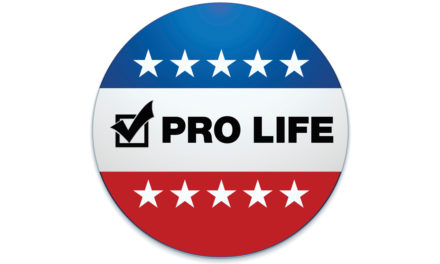This is the second in a series of articles about key issues in schools and the importance of engaging in local school board elections. Read the first part, here.
Sexual education is mandated in 33 states and the District of Columbia, but specific laws and department of education policies vary widely from state to state. Ten states, for example, have policies requiring discussing sexual health for LGBT identified youth or instruction about sexual orientation and gender identity, while 16 states require instruction on condoms and contraception when sex education is provided.
While they must follow state mandates, local school boards have a lot of authority as they decide what curriculums and resources will be used in sex ed instruction. So it’s important for parents and other concerned citizens to know what school board candidates believe about sex education in public schools.
That’s where groups like SIECUS: Sex Ed for Social Change (formerly the Sexuality Information and Education Council of the United States) and other radical organizations come into play as they seek to influence local boards of education regarding what standards and curriculums are chosen.
In a partnership called the Future of Sex Education (FoSE), SIECUS, Answer and Advocates for Youth have produced what they call “National Sex Education Standards: Core Content and Skills, K-12.”
Sounds official, doesn’t it? School board members can point to the title and say, “We’re following national sex ed standards.” But parents should know what the standards advocate and the background of the groups involved.
The FoSE standards promote “Comprehensive Sex Ed” (CSE), which is rooted in an ideology that says people of all ages – including children – have “sexual rights.” CSE curriculum is written and taught based on the faulty assumption that every student is not only thinking about sex, but is going to have it, sooner rather than later.
Many CSE materials and curricula can be sexually explicit and offensive, inappropriate for children and teens. CSE is guided by the belief that all that’s necessary for a sexual relationship is “consent,” how to give or withdraw consent for sexual activity. This is often taught long before children can even legally agree to such activity – or have fully developed brains that understand what they are consenting to.
CSE also leaves educators and curriculum designers deciding what is “age appropriate” – not parents. This one-size-fits-all model teaches sex education as if all children of the same age are ready to handle the same concepts, rather than relying on parents’ knowledge of what is best for their kids.
The FoSE standards suggest that kindergartners and first and second graders should be able to “Identify different kinds of families (e.g., nuclear, single parent, blended, intergenerational, cohabiting, adoptive, foster, same-gender, interracial).” These five to seven-year-olds should also be able to “Define gender, gender identity, and gender-role stereotypes.”
Children in third through fifth grade should be able to “Explain common human sexual development and the role of hormones (e.g., romantic and sexual feelings, masturbation, mood swings, timing of pubertal onset).” In addition, they should be taught transgender ideology so that they can “Distinguish between sex assigned at birth and gender identity and explain how they may or may not differ” and “Define and explain differences between cisgender, transgender, gender nonbinary, gender expansive, and gender identity.”
By eighth grade, the FoSE standards want students to be able to “Describe the steps to using barrier methods correctly (e.g., external and internal condoms, dental dams).”
One FoSE goal is to create a generation of activists who are steeped in a sexual and social ideology that is damaging and harmful. The guidelines stress “intersectionality,” a concept from critical race theory that teaches that individuals have a variety of identities based on things like race, religion, ethnicity, language, sex, “gender identity,” and sexual attractions and behaviors. Individuals are either oppressors or oppressed, based on that intersection of identities.
The groups behind the standards are as problematic as the standards. SIECUS was founded by Mary Calderone, former medical director for Planned Parenthood. The organization grew out of the Kinsey Institute, named after Alfred Kinsey, whose deeply flawed and unethical research and books were instrumental in changing our society’s views about sex, relationships and marriage – not for the better.
SIECUS recently changed its name to incorporate the motto, “Sex Ed for Social Change.” The organization says,
Sex education has the power to spark large-scale social change. SIECUS is not a single-issue organization because sex ed, as SIECUS envisions it, connects and addresses a variety of social issues. Sex ed sits at the nexus of many social justice movements – from LGBTQ rights and reproductive justice to the #MeToo movement and urgent conversations around consent and healthy relationships.
Advocates for Youth has a similar extremist ideology, as it works to “end laws that impose barriers to abortion care.” This goal includes giving young people access to abortion “without parental involvement or political interference.” The group has a project called “Abortion Out Loud” where more than 1,500 women have shared their “abortion stories.”
Another initiative from Advocates for Youth is AMAZE, a video sex education project. These cartoon videos teach children that sex – being male or female – is “assigned” at birth and “gender” exists on a spectrum. One video shows a big purple creature teaching the “fact” that “abortion is a very personal decision, and only the person who’s pregnant can know what is best for them.” The videos are often highlighted or linked to in CSE curriculums and resource lists.
Answer, the third partner in creating the FoSE standards, describes itself as “a national organization that provides and promotes unfettered access to comprehensive sexuality education for young people and the adults who teach them (their emphasis).” Based in the Center for Applied Psychology at Rutgers University, Answer has a website sex, etc., “written by teens – for teens.”
For most conservatives, except for the biological aspects of reproduction, sex education is a moral issue best taught in the home and in church. Conservative alternatives to CSE include Sexual Risk Avoidance – formerly called Abstinence Education.
Voters should be informed about this issue and find out where school board candidates stand on sexuality education in schools.
Resources and articles about sex education in schools
The Daily Citizen
- Back To School – For Parents: A busy parent’s guide to what’s happening in your children’s classrooms and practical steps you can take to protect them
- Bill that Teaches ‘Gender Identity’ to Kindergarteners Signed into Law by Illinois Governor
- Comprehensive Sexuality Education – The Failures of ‘FLASH’
- Is ‘Comprehensive Sex Education’ Effective – As its Proponents Claim?
Institute for Research and Evaluation
- An Evidence-Based Rebuttal to a Critique of Abstinence Education
- New Published Study on Comprehensive Sex Education
- Re-Examining the Evidence for Comprehensive Sex Education in Schools:
Medical Institute for Sexual Health
- NEW K-12 Standards for Optimal Sexual Development: Founded on Positive Character and Healthy Relationships – These conservative guidelines provide an alternative to the flawed guidance in the FoSE standards.
We Ascend – Provides information about Sexual Risk Avoidance curriculums and training; programs and resources for schools, parents and educators; and information about CSE.
Photo from Shutterstock.






